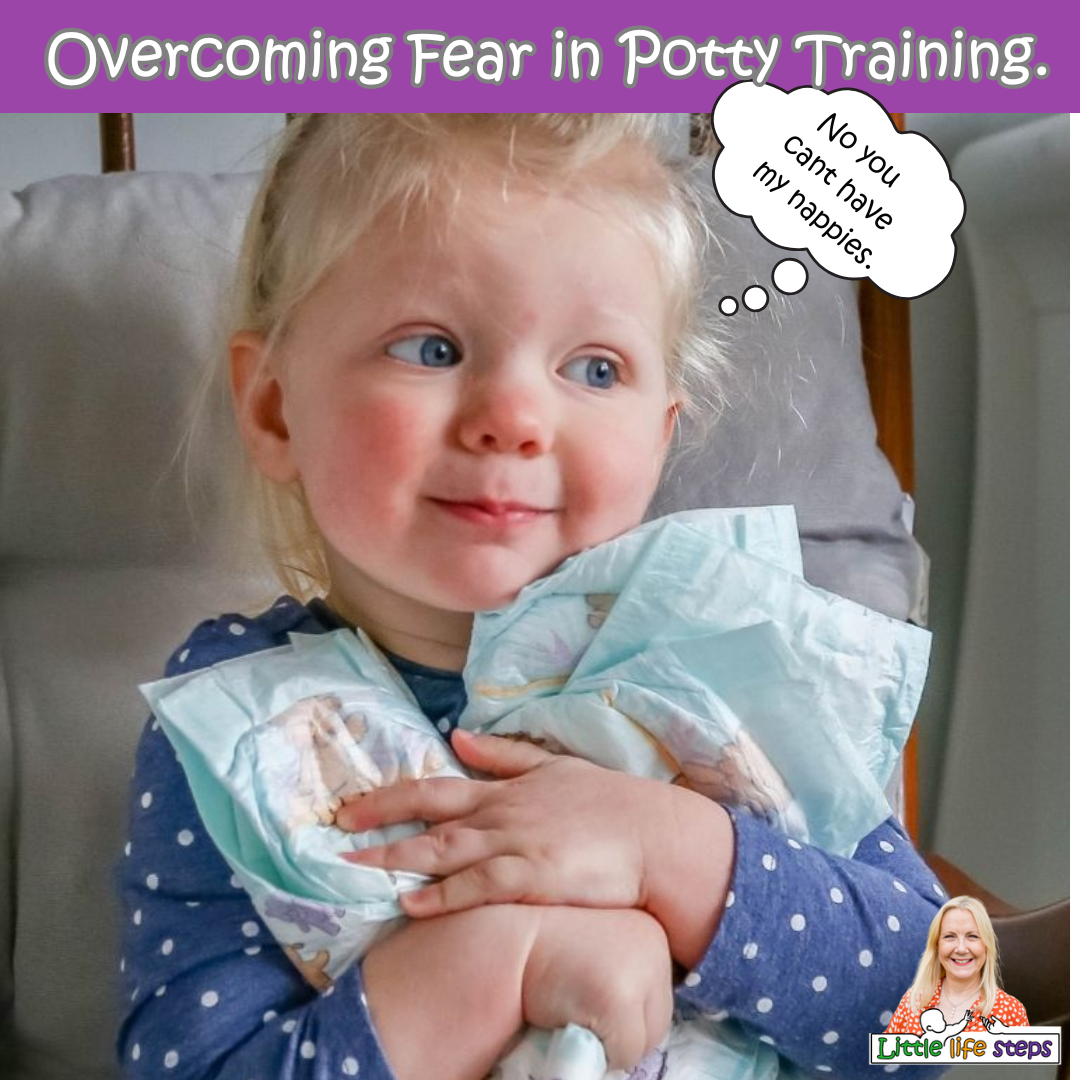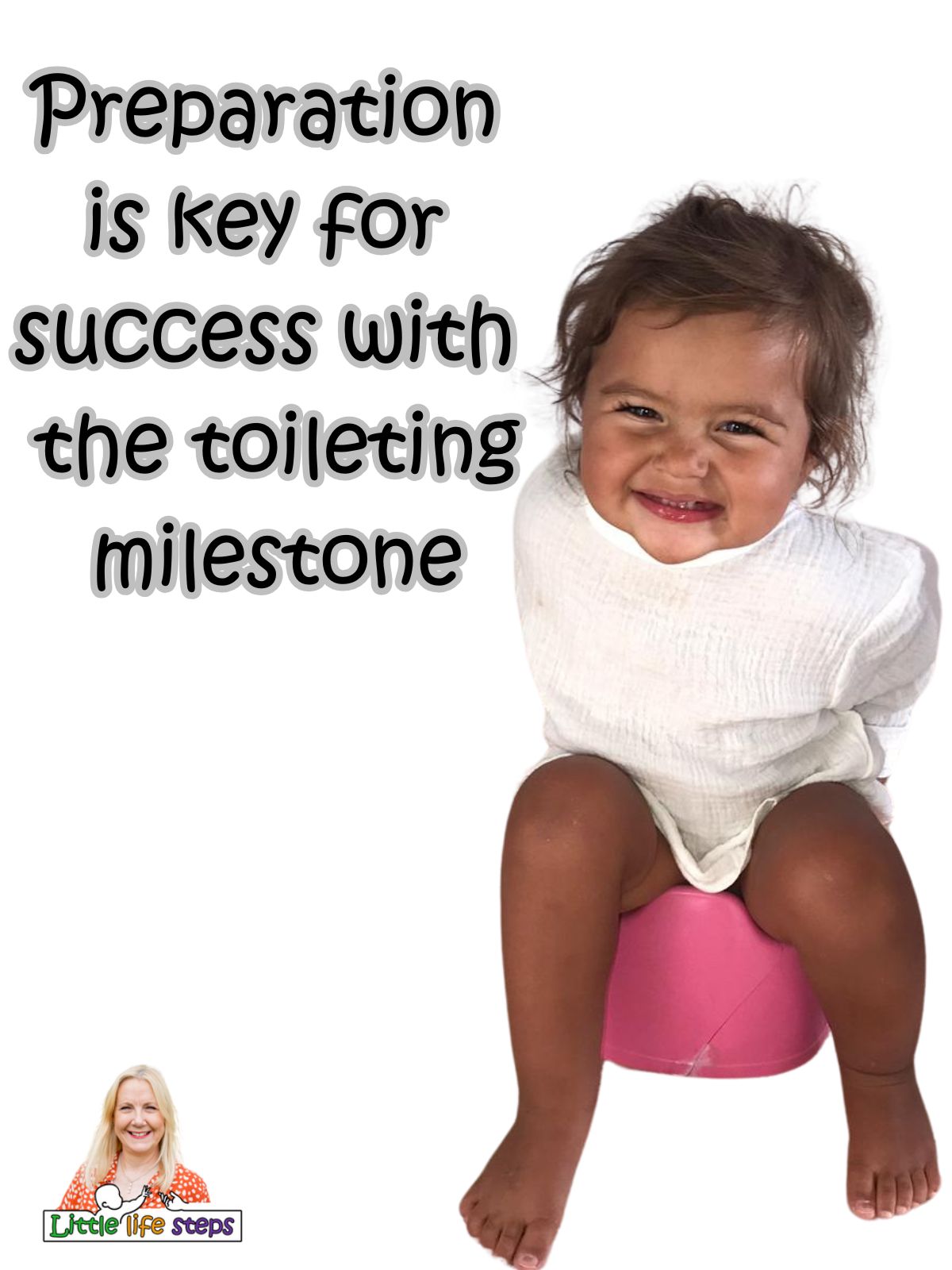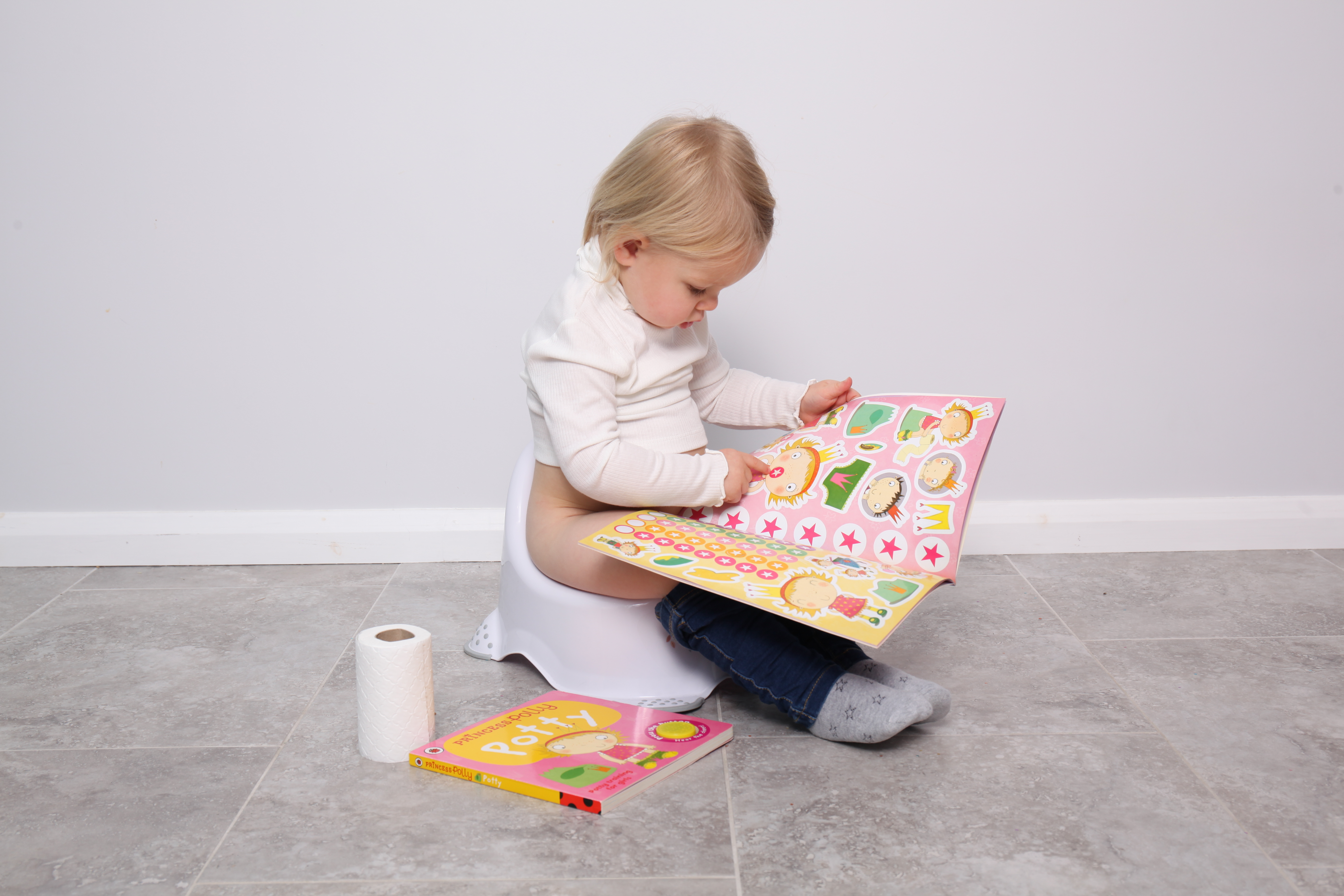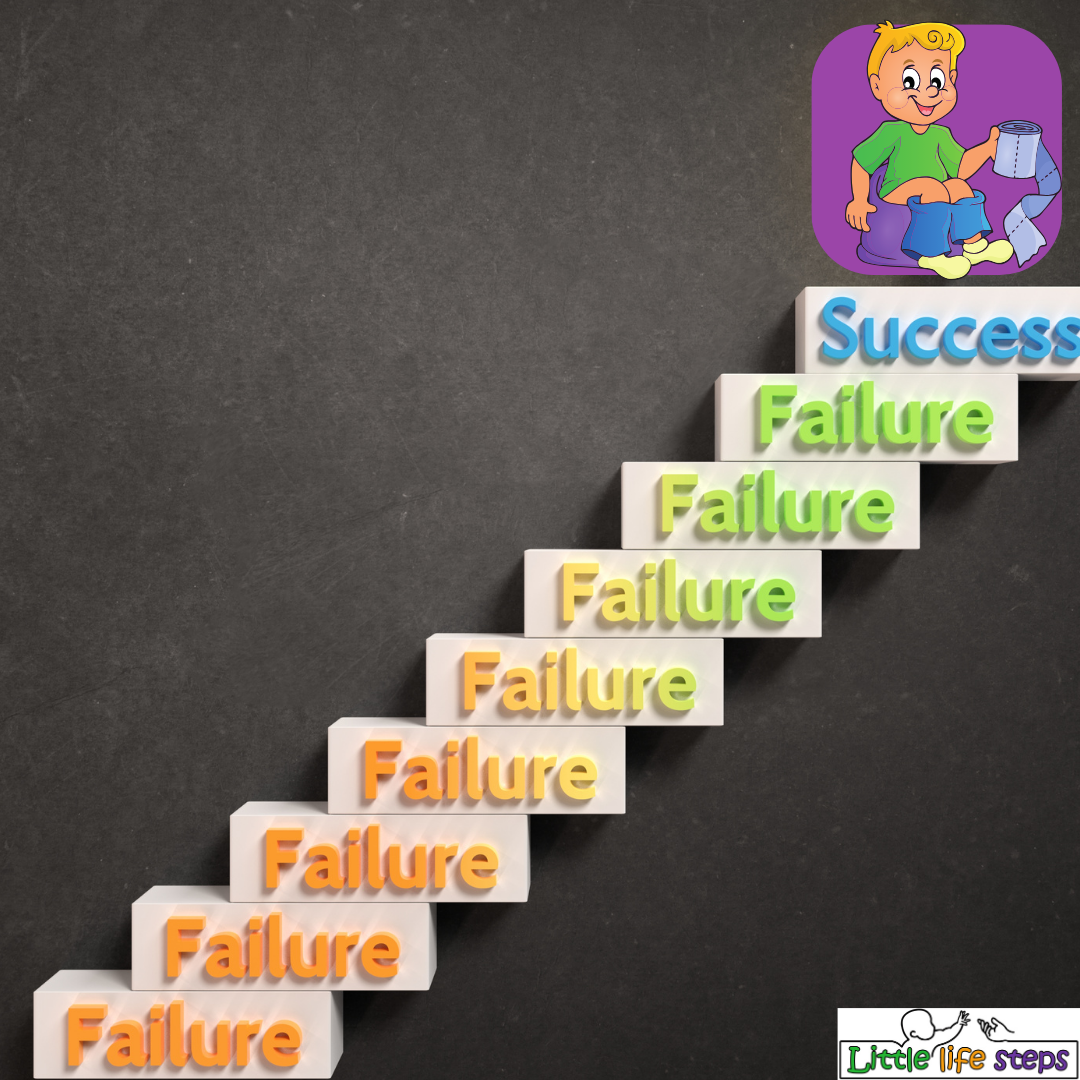- Nov 1, 2024
Addressing the "Why". Overcoming Fear in Potty Training.
- Sue Welby
- Toileting
- 0 comments

If you've spent any time in parenting forums or groups, you've probably heard this advice on repeat..............................
"Just keep being consistent. Remind your child to use the toilet, and eventually, they'll get it."
But what if they don’t?
What if consistency alone doesn’t make the difference? Often, we don’t realise that for some children, there’s a deeper “why” behind their resistance to potty training, a “why” rooted in fear or anxiety.
The truth is, some children are genuinely afraid of potty training or the change potty training brings.
Whether it’s the sound of the flush, the feeling of losing control, or even the intimidating newness of the whole process, this fear is real and valid. Ignoring these underlying concerns and hoping that repetition alone will help can create more stress for both parents and children. Instead of staying stuck in the cycle of reminders and routines, it’s crucial to address their “why”, the specific fears or anxieties they might have about using the toilet.
In this blog, I will share the best way to help with resistance and fear, along with some helpful language adjustments to support your child through the process.
Potty training doesn’t have to be a power struggle. When we approach it with empathy and understanding, we set the stage for a positive experience that respects our children’s needs and builds their confidence.
Let’s dive into the “why” behind potty training fear and how to truly support our children through this developmental milestone.
The nappy provided a comfortable feeling against their skin and served as a convenient toilet.
They didn't have to worry about their bodily functions,
They didn't have to interrupt their playtime,
They didn't have to take any action or responsibility for using the toilet.
As parents, we are there to guide them in acquiring this new skill, assisting them in memorising the steps and instilling those crucial concepts in their active minds.
The brains of toddlers and preschoolers are constantly absorbing new information. Their main focus is on exploring, and using the toilet isn't their top priority.
The best way to minimize resistance and fear when transitioning from nappies is through preparation. This step is crucial before discontinuing the use of nappies.
Preparation can ease the shift to underwear for children who are more sensitive to change. My online potty training course is all about preparation being key to success.
Or you can join my Parenting Solutions Hub and access my potty training course with loads of other resources for sleep, behaviour and eating. Check it out here.

Sometimes, a child might connect a multitude of emotions to toilet training, which could be related to other events.
Events such as the arrival of a new sibling, an older and more mobile sibling, a parent starting a new job, a family member's pregnancy, or the passing of a pet can trigger a child to associate emotions with toileting resistance.
To help children cope with any toilet-related worries or fears, here are some phrases you can use:
“Mummy is here to help; we can figure this out together.”
“Would a big bear hug make you feel better?”
“I can see you're feeling tense. Let's release that tension together with a silly shake."
“Mummy understands you're worried about using the toilet. I trust you will do it when you are ready.”

You can reassure your child that their brain is signaling the worry.
You can help your child understand that their brain is simply sending them worry signals.
Encourage them to shift their mindset by thinking of something funny or amusing, when they find humour, it can transform their emotional state. Praise their ability with words like "How clever you are, you can control your brain"
When talking about toileting with families, I recommend avoiding the word "scared" since it may suggest the experience is frightening. Instead, I often use "weird" to describe the unfamiliar sensation of using the toilet instead of a nappy. You might say something like "Sometimes it can feel weird when wee wee leaves our body."
This acknowledges that it's perfectly normal for children to feel uncertain, whether about the new physical sensations or using different toilets outside their home.
Show empathy by saying something like "Mummy sees that this is challenging for you." Reassure your child that you're their "potty partner" and that you'll work through this journey together as a team.

Children with certain temperaments, particularly those with perfectionist tendencies, often experience a strong fear of failure. This fear can either prevent them from trying new things as a protective measure or cause significant anxiety and distress.
In my online potty training course, I've included a special video about understanding different temperaments. This helps parents approach potty training in a way that matches their child's unique personality.
For children who fear failure, creating a safe environment where mistakes are seen as normal learning opportunities is crucial. Your responses to errors matter greatly, try modeling resilience by saying things like "Oh dear, I made a mistake. I can try again." This shows them that effort is just as valuable as results.
Breaking down the process into manageable steps can also help reduce anxiety. Use a timer to set short, achievable goals, start with a brief sitting period and gradually increase the duration as your child becomes more comfortable. When you notice their uncertainty, acknowledge it. "I see you're feeling unsure about sitting on the toilet today."
Then, offer them controlled choices to help them feel more empowered: "Would you like to set the timer for 15 minutes (showing on a clock or hourglass) or 5 minutes? When it goes off, we can go back to playing. I wonder what you'll choose"
Remember to smile and maintain an upbeat, encouraging tone.
For more strategies, you can check out my PDF guide "12 Tips and Tricks for Strong-Willed Children," which is filled with creative choices you can offer your child.
Remember, successfully addressing potty training fears comes down to understanding your child's individual needs and providing gentle, confidence-building support.
If you’d like more personalized help with this process, I offer one-on-one support tailored to your family’s situation. You’re also welcome to book a free 15-minute call to discuss your child’s needs and explore how I can help.
Let’s make potty training a positive experience for both you and your child :)